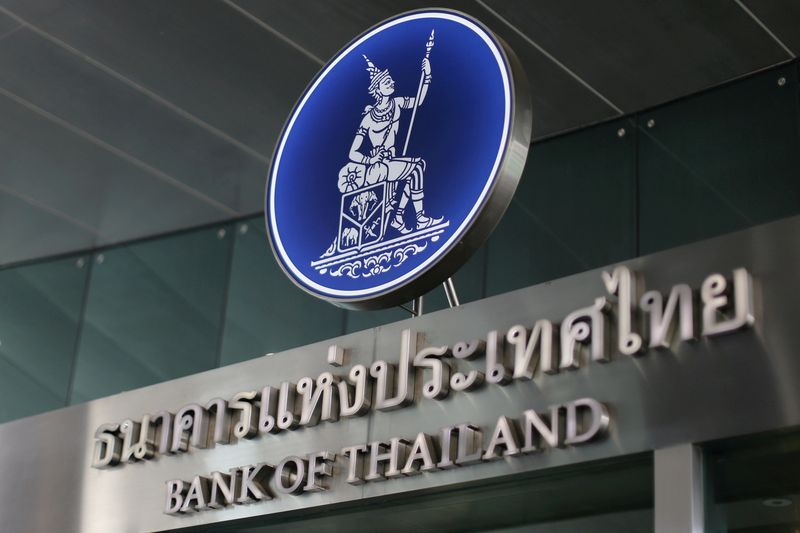By Orathai Sriring and Kitiphong Thaichareon
BANGKOK (Reuters) -Thailand's central bank raised its key rate by a quarter point on Wednesday, saying core inflation remained elevated but it is ready to normalise policy depending on the economic outlook.
With headline inflation already back in the central bank's target range, some analysts suggested the widely expected rate rise could mark the end of its tightening cycle.
The Bank of Thailand's (BOT) monetary policy committee voted unanimously to raise the one-day repurchase rate for a sixth straight meeting to 2.00%, as expected by 17 of 22 economists polled by Reuters.
The Committee said it was prepared to adjust the size and timing of policy normalisation should the evolving growth and inflation outlook differ from the current assessment.
With Wednesday's move, the BOT has raised its key rate by a total of 150 basis points since August.
"Overall, policy implementation has been appropriate and will continue," Assistant Governor Piti Disyatat told a news conference, adding that while headline inflation slowed, core inflation remained elevated which warranted monitoring.
"Inflationary risks stem from greater demand pressures amid expanding economic activity and higher cost pass-through from supply pressures," the BOT said in a statement.
Headline inflation was seen at 2.5% this year, compared with 2.9% in March, the central bank said on Wednesday, while maintaining its earlier forecast of 2.4% for 2024.
The BOT predicted core inflation at 2.0% this year and in 2024.
In April, headline inflation dropped to 2.67%, inside the BOT's target range of 1% to 3%, while core inflation was 1.66%.
EXPORTS IMPROVING
The recovery in Southeast Asia's second-largest economy continues to gain traction, the central bank said, and growth may expand more than expected, with exports set to improve in the second half of the year.
The central bank maintained its economic growth forecasts at 3.6% this year and 3.8% next year. Last year's growth was 2.6%.
There is upside to domestic growth due in part to forthcoming government economic policies, the BOT said.
The Thai economy expanded faster than expected in the first quarter helped by recovering tourism, and the return of Chinese tourists following the country's reopening after the pandemic.
The BOT expects foreign arrivals of 29 million this year and 35.5 million next year, slightly above its forecasts in March.
Pre-pandemic 2019 saw a record of nearly 40 million foreign tourist arrivals who spent 1.91 trillion baht ($56.43 billion).
But growth may be crimped by political uncertainty that lies ahead over the formation of a new government after the opposition secured a stunning election victory this month.
"Investment, in particular, likely will be missing in action this quarter and next, at least, with businesses remaining on the sidelines until the still-fragile transition in government is complete," said Miguel Chanco of Pantheon Macroeconomics.
Kobsidthi Silpachai, head of capital markets research of Kasikornbank, also warned of risks.

"It is prudent that the MPC takes a long pause ... as there are countervailing forces on inflation, which seems tilted towards further downside".
The BOT's next monetary policy review is on Aug. 2.